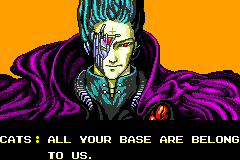What a long and (sometimes strange) trip its been since a group of stalwart government innovators published Social Media and the Federal Government: Perceived and Real Barriers and Potential Solutions in Dec. 2008.
Federal agencies are blogging, tweeting, sharing photos and videos, publishing data, running online public dialogues, texting, fanning and friending. Here's a great list in case you need to catch up.
Good news is that many of the policy barriers have been overcome and agencies are regularly using social media to communicate and, in some cases, serve the public. The complicating news is that the mainstreaming of social media has brought new eyes and challenges to light.
Two areas of increasing concern are the security of social networks and agency compliance with federal records requirements. I have heard that people in some agencies are asking if Twitter is FISMA compliant. Other folks are asking if their agency could comply with a Freedom of Information Act (FOIA) request for posts on their Facebook wall. Some are wondering how agencies should archive comments on YouTube and Facebook or @replies on Twitter.
This manifests itself practically in an office saying they won't allow use of Twitter since it hasn't been accredited in accordance with NIST SP 800-37 "Guide for the Security Certification and Accreditation of Federal Information Systems." Hunh? Or another office saying that there will be no comments, or that comments will be ignored(!), on their Facebook wall because to interact would create a government record. Whaa? Big barriers to participation, no?
I wonder. Do people who comment on government pages and channels expect that they are entering data into the federal record? Or are they thinking it's like a town hall or letter to the editor in a newspaper? Or more likely something for their other friends to see?
I wonder. Are agencies barred from using public social networks unless these private networks follow government security requirements? [And would they turn over security documentation for the public record?] Or are theses public commons in which the government engages, like the President giving a speech at a school or addressing the public as a guest on a cable TV show?
I wonder. Does government own or control third-party, private social media networks like Facebook, Twitter, and YouTube? Or is government a participant--like everyone else--in these communities.
Discuss.

